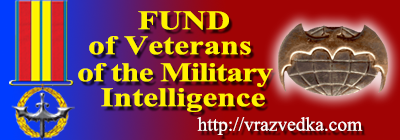The signing of the economic part of the Association Agreement with Ukraine, Baku Declaration of the OSCE Parliamentary Assembly, as well as Walter Steinmeier's attempts to persuade Russia to agree on quadripartite consultations of Foreign Ministers of Germany, France, Russia and Ukraine show a high support of the international democratic community to Ukraine's efforts to restore peace and constitutional order in the country.
At the same time, Putin (not Russia) does not abandon plans of creeping destabilization and defragmentation of Ukraine, staking on, among other things, on disunion of the «international front» against the Kremlin aggressor and his allies — Ukrainian separatists and criminals.
|
|
Despite the high for Russian citizens economic price[1] of Putin’s project of «Supporting compatriots in Ukraine» (and inherently undeclared/hybrid war against Ukraine), the Russian state machine continues to advance on the foreign policy front, for «coercion of Kyiv to peace» using energy, economic, information weapons and diplomatic instruments. And as a result, their neighbors state will become weak, fragmented and will lose its independence.
Using its chairmanship in the UN Security Council, Russia has intensified adopting of the proposed by it resolution on Ukraine, thus trying to impose its seeing the situation in the eastern regions of Ukraine as a «humanitarian catastrophe» caused by the Ukrainian military/ punitive campaign. (Has no chance of support, having received a resolute rebuff from countries-friends of Ukraine in the United Nations, who perceive the situation in the East of Ukraine as an armed rebellion supported and financed by Russia, and using minor public support).
Sadly, this Kremlin's active work sometimes does bring fruit desirable for V. Putin. We mean, in particular, signs of rapprochement between Germany and Russia regarding Ukraine and China's joining them, the announced by Austria and Hungary decision on the «South Stream» (transit of gas bypassing Ukraine) and «forgetfulness» of questions about replacing the Budapest Memorandum with a binding international agreement on guarantees of the territorial integrity of Ukraine and Ukraine's membership in NATO, personnel decision regarding the OSCE Representative at tripartite negotiations (sympathetic to the Kremlin), lobbying successes of the Eastern Committee of German economy and representatives of other national business associations, the unadvertised decisions of individual states regarding relations with the Russian federation and even the prospect of arming the aggressor with the latest models of military equipment (for example: with French «Mistrals»).
As for the Italian leadership, presiding over the EU since 1 July this year, it is actively trying to neutralize the USA's attempts to consolidate the leaders of EU member states on the issue of extension of restrictive measures against Russia because of the Kremlin's actual non-compliance with the truce.
The Russian-Ukrainian conflict has revealed a number of observed among states of the Vishegrad Group disagreements on the establishment of the mission of the Common Security and Defence Policy in Ukraine, as well as on introduction of sanctions against Russia (especially this concerns Hungary and Slovakia). Poland leads consistent and aggressive pro-Ukrainian policy. The official Bratislava at the political level adheres to the common European position — condemnation of Russia's actions against Ukraine. However, the Government of the Slovak Republic does not intend to discontinue its cooperation with Russia in many spheres (recently they signed an agreement on possible Russian investments into the development of electricity network in Slovakia in the amount of approximately 800 million Euros, negotiations continue between the Slovak SPP energy operator with «Gazprom» to reduce next year purchasing gas prices).
|
|
According to experts, some EU countries (including Germany, Italy, Spain, Greece, Slovakia, and Czech Republic) are not ready to break economic ties with the Russian Federation. And that is why they will «hold on to» any formal signs of Russia's being ready to make concessions and help to eliminate the conflict by diplomatic means, provided that against the RF will not be introduced more economic sanctions. As a result, the period of such «diplomatic games» is actively used by the Russian Federation for strengthening position of militants and for controlling the eastern regions of Ukraine.
Some experts in international law do not exclude that European diplomacy will gradually lean toward the fact that the hot phase of the conflict in the Donbas should be transferred to the negotiating plane with international organizations' active joining it, in particular the OSCE. The only deterrent to greater pressure on Kyiv in this direction is absence of counter-arguments to the absolute thesis of Ukraine's protection of its territorial integrity within the framework of ATO.
Objectively, it must be admitted that the moods in the European institutions include the prospect of final introducing the third sector packet of sanctions will depend on the position of the heads of states and governments of the EU member states, some of whom are concerned about the risk of the RF's asymmetric response in the energy sector, the impact of sanctions on economies of their countries, as well as the uncertainty of the issue around the use of the «solidarity fund» by EU member states, that will experience some losses from introduction of sanctions.
Recently, somewhat has changed the position towards Ukraine of Russia's partners in the Customs Union: Astana (together with Minsk) rejected Russia’s idea to take a collective decision to increase duties on Ukrainian goods in the Customs Union, but during May-June in official documents and appeals of the Republic of Kazakhstan there was observed neither accusations against the new leadership of Ukraine nor an actual recognition of the annexation of the Crimea. At the same time, the Kazakhstan's side has expressed its disagreement (though not publicly), with statements of some Russian government officials about the potential use of CSTO forces (in the form of units of the Russian Armed Forces) for a «peacekeeping operation» in Ukraine.
In such external and security situation, especially urgent becomes the offensive work of the Ukrainian Government and Foreign Ministry on neutralizing plans of the Russian leadership, countering the diplomatic offensive of the Kremlin, and early introduction of the long-awaited by the Ukrainian society, modernization package of political and economic reforms.
[1] According to the Ministry of Finance of the Russian Federation, despite the availability of reserves to compensate for possible losses from economic sanctions, the escalation of tension before the end of the year will reduce the RF's GDP growth to 0.2-0.3% and lead to an outflow of foreign capital in the amount of up to 100 billion US dollars, and in the medium and long term perspective, external and internal risks for the Russian Federation's economy will be extremely high, including the fall of the rouble, outflow of capital, limiting of the import of technologies, deteriorating terms of export of energy carriers and a significant reduction in fiscal sustainability..





